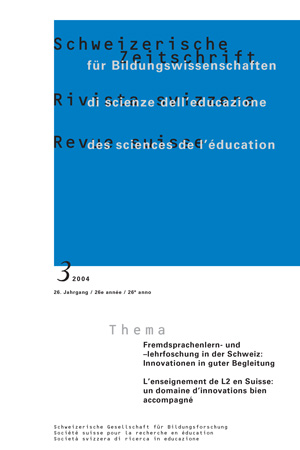Developing instruments for the assessment of foreign-language proficiency (French/English): Goals, context, outcomes and methodological aspects of the IEF project
DOI:
https://doi.org/10.24452/sjer.26.3.4687Abstract
In the future the expected outcomes (or standards) of language learning and teaching in Swiss public schools will be defined through language proficiency descriptors describing target skills and levels. Corresponding assessment instruments are needed for quality assurance and also for pedagogic purposes. Therefore, the cantons of German-speaking Switzerland decided after intensive preparatory work to launch the IEF project (Instrumente für die Evaluation von Fremdsprachenkompetenzen). Within this project a range of instruments for the assessment (including self-assessment) of French and Englisch proficiency of 11 to 16 year-old pupils is to be developed.
IEF combines both, research and product-oriented development, in an interesting way. This article presents the objectives, elements and methods of IEF in some detail, and it links IEF to work that was undertaken previously. The specific type of scientificness of IEF is discussed at some length; the methods used in the sub-project concerned with the assessment of spoken language proficiency are taken as an example.
Downloads
Downloads
Published
Issue
Section
License
Copyright (c) 2004 Thomas Studer, Peter Lenz, Monika Mettler

This work is licensed under a Creative Commons Attribution 4.0 International License.



